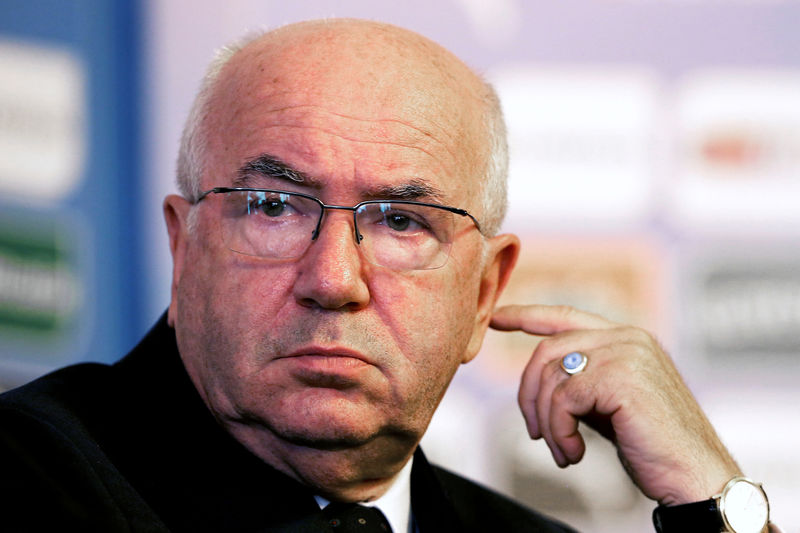ROME (Reuters) - Italian football federation (FIGC) president Carlo Tavecchio resigned on Monday, a week after the national team failed to qualify for the World Cup finals for the first time in 60 years.
Tavecchio, 74, had been under pressure to step down after a goalless draw at home to Sweden meant Italy missed out on the World Cup for the first time since 1958. Coach Gian Piero Ventura was sacked last Wednesday.
An angry Tavecchio told a news conference he had resigned because he had lost political support within the FIGC, not because of the team's results on the field.
"I didn't think for an instant. I resigned and I resigned as a political act to the Council, certainly not for sporting reasons," he said. "I asked the members of the Federal Council to resign as well and nobody did, they left me on my own."
Often referring to himself in the third person, he said he had been the victim of persecution by the media. "The only thing missing was Tavecchio on the cross," he said.
He also said that Italy's elimination had affected him personally as an ordinary fan. "Carlo Tavecchio was very upset, but not as the head of the soccer federation, but as Carlo Tavecchio."
He added that it had not been his decision to appoint Ventura, a journeyman coach who had never coached either AC Milan, Inter Milan or Juventus nor won a major title at club level.
"Now, everyone knows that I wasn't the one who chose Ventura. (But) Tavecchio pays because of Ventura," he said.
Tavecchio was first elected to the FIGC post in August 2014 with the support of the third and fourth-tier clubs and amateur leagues who hold the balance of power in FIGC elections.
He replaced Giancarlo Abete, who had resigned immediately after Italy were knocked out in the first round of the World Cup in Brazil -- an example which Tavecchio was under pressure to follow.
He was re-elected as head of the federation in March when he said that he had restored Italy's credibility.
During the 2014 FIGC campaign, Tavecchio caused an outcry when he made a comment about a fictitious African player he named Opti Poba "eating bananas".

He was subsequently banned from holding any position with world governing body FIFA for six months while European body UEFA imposed a similar sanction. The FIGC, however, cleared him of any wrongdoing.